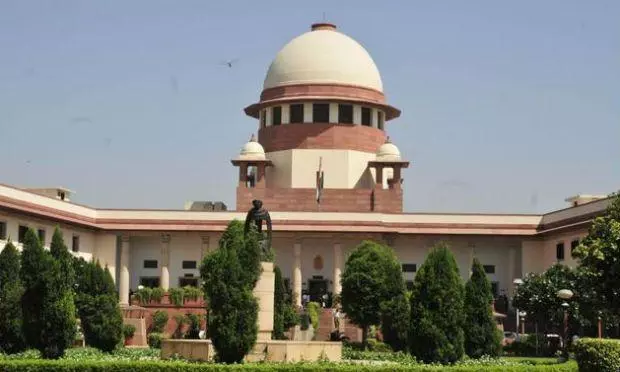AA Edit | SC guidelines needed to deter ‘bulldozer justice’

The Supreme Court’s decision to lay down pan-India guidelines to regulate the demolition of immovable properties by state agencies is one of the most reassuring interventions by the top court to ensure that this country is governed by the rule of law.
Bulldozer raj, or targeted demolition of houses and shops of people accused of committing heinous crimes, is an invention by some elements of the right wing in India when they got a chance to wield power. Uttar Pradesh chief minister Yogi Adityanath remains the proponent of this patently illegal, undemocratic and unconstitutional act which reminds one of the pre-historic era when an eye for an eye was the rule. Some other BJP state governments also found it a convenient tool to target people whom they consider outside their definition of bona fide citizens. The bulldozer has become an epitome of instant justice among the acolytes of these musclemen who have little patience with democracy and its instruments, including courts of justice.
It is in fact a travesty that it took the Supreme Court of India, after dozens of demolitions and a virtual free run for the “bulldozer raj” for years, to remind its practitioners that their act has no backing of the law. The defence the solicitor-general representing the Uttar Pradesh government presented before the court is nothing but a diversionary tactic. As per him, the governments which put bulldozer raj into practice had followed the municipal laws which provided for the demolition of houses and shops which are illegal. He forgot the fact that none had questioned those municipal laws which provided for demolition of illegal structures; the question is whether a government can or should link those demolition laws to laws governing criminal prosecution.
In practical terms, the question is not whether the bulldozer followed a notice as per the municipal law; instead, it is whether the bulldozer followed all the notices or only the ones pertaining to those who have been accused of crimes under other different laws.
The Supreme Court was smart enough to see through this argument of the Uttar Pradesh government when it said it will then put in place guidelines for demolitions. That the court has no plans to amend the municipal laws or put an end to all demolitions was made abundantly clear when it said it would not want to protect illegal structures. All it wants to ensure that the process of the law is followed when governments act.
The governments that have taken law into their hands and targeted people on the basis of alleged crimes they committed must stop doing so as the Supreme Court’s objection is primarily to the linking of the two. The implementation of municipal laws against illegal construction must take its path; the prosecution of crimes under the relevant laws should take theirs. The Indian Constitution, or the legal framework it has established, does not provide for retributive justice.
That democratic processes can be painfully slow is a hard fact of life. Perfecting them is the only option; dispensation of summary justice is not.

